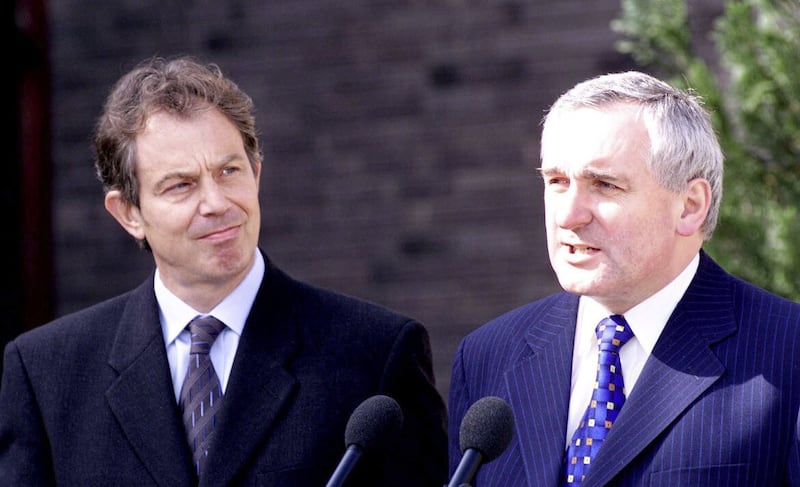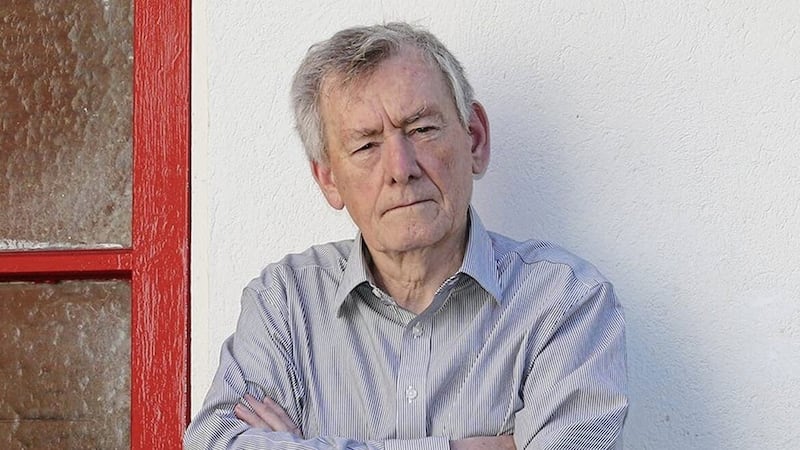EVERY Saturday my small legs struggled to climb the winding stairs, holding tightly to my Mammy’s half crown that I was to give to the man in the Foresters’ office.
The Irish National Foresters was the credit union/Christmas saving club of my childhood.
I had thought the Foresters no longer existed. I hadn’t heard of them in 50 years or more.
A few days ago, I accidentally discovered that they had an office in Belfast, and I think they have one in Dublin. I have read that in the days of my short legs, they had an office in every parish in Ireland.
The moral of the history of the Foresters is that, in certain circumstances and with an attachment to dogmatic resistance to adaptability and change, organisations don’t so much leave the world as the world leaves them.
The Foresters came to mind in reading a letter from the Bishop of Derry informing us that many parishes in his diocese will soon be grouped into ‘hubs’.
In theory, the names of the parishes will continue to exist but, in reality, they are being merged or subsumed into new and bigger entities.
The first time I saw the word ‘hub’ used about organisational change was in the discussion about GP surgeries and the result was that I don’t have a doctor any more, I have a medical practice.
GPs are certainly in a state of chassis, but nowhere near what Catholic parishes and clergy are undergoing. There are books to be written and books to be read about the future of the Church and the future of parishes but for now, suffice to say that the Foresters analogy will continue until the Church embraces women and married clergy.
The world finds the arguments for the exclusion of women and married men from ministry outdated and, more importantly, bigoted. The world is leaving behind a dogmatic resistance to rightful change.
But the analogy doesn’t stop with the Church. During the week I picked up parts of interviews with three esteemed former political leaders, Bertie Ahern, John Major and Tony Blair.
The bulk of what I heard in the interviews made good sense. But in the light of the re-awakening memory of my Mammy saving half a crown a week and the demise of the Foresters, I was disappointed that these eminent politicians didn’t grasp the opportunity to talk about our future. The future is what now matters.
The protocol, cost of living crisis, the collapse of the health service are probably the three big current political issues but underlying, overarching, and dominating all our politics is the future – is it with Ireland or with England? Everything else is subject to that question.
The Good Friday Agreement was our ‘hub’. It brilliantly brought the bulk of violence to an end and it gave space and example of good practice. But it was weak on constitutional change.

A border poll in the power of an absentee British politician, without any clear mechanism for discussing the meaning and the consequences of such a poll, is not exactly a model of good preparation for such a fundamental question.
The refusal of unionism, political and civic, to engage in an extended and mature negotiation about the future of Ireland is akin to the Foresters.
It is certainly possible for unionism to sit at the top of windy stairs, hugging their hurt and their fear of the future. It is possible to blame all and sundry for their precarious political situation, in which they have lost their assured majority and their assumed political leadership.
I remember my reluctance and fear the first time I went up the windy stairs to the Foresters’ office. After getting past the fear, I used to run up as fast as my little legs would take me.









